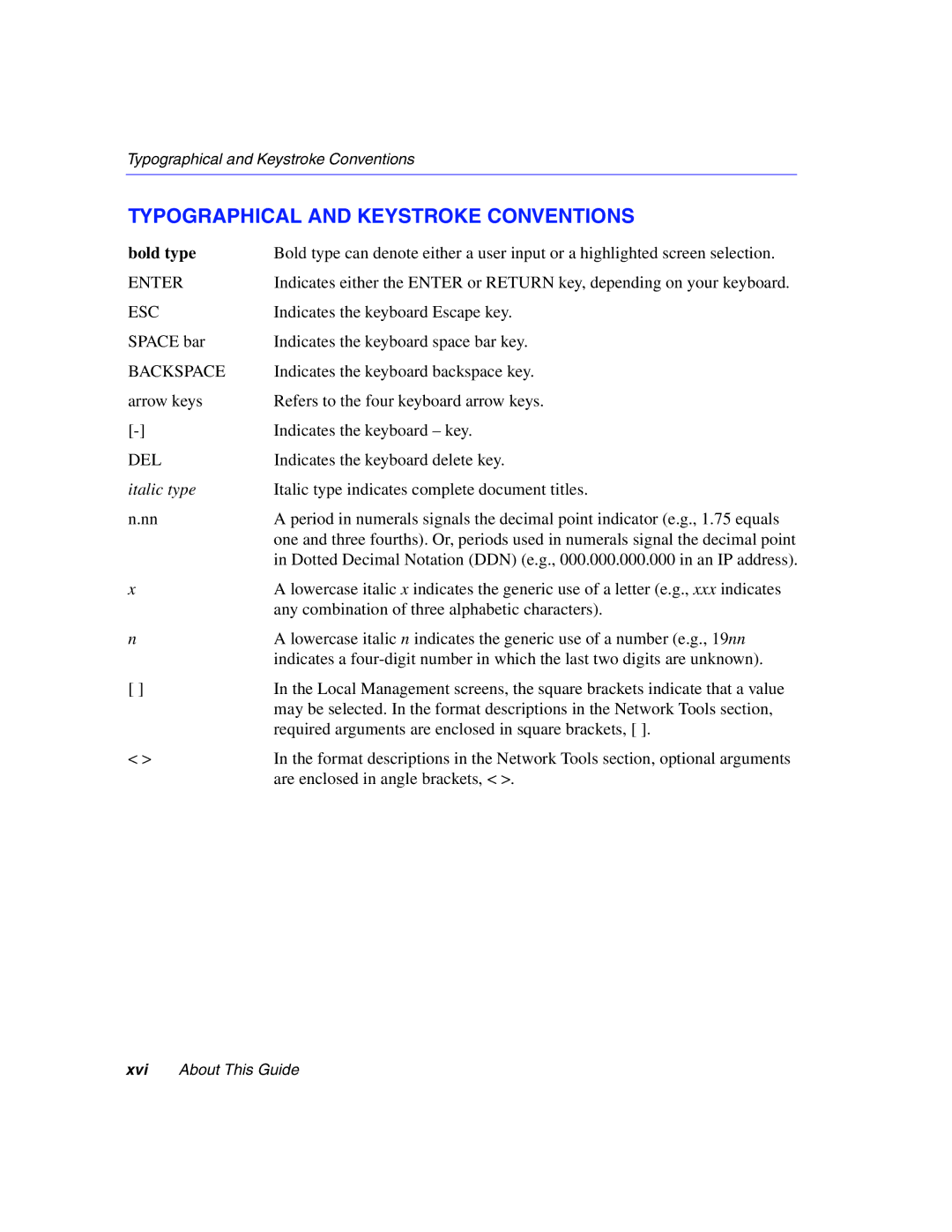Typographical and Keystroke Conventions
TYPOGRAPHICAL AND KEYSTROKE CONVENTIONS
bold type | Bold type can denote either a user input or a highlighted screen selection. |
ENTER | Indicates either the ENTER or RETURN key, depending on your keyboard. |
ESC | Indicates the keyboard Escape key. |
SPACE bar | Indicates the keyboard space bar key. |
BACKSPACE | Indicates the keyboard backspace key. |
arrow keys | Refers to the four keyboard arrow keys. |
Indicates the keyboard – key. | |
DEL | Indicates the keyboard delete key. |
italic type | Italic type indicates complete document titles. |
n.nn | A period in numerals signals the decimal point indicator (e.g., 1.75 equals |
| one and three fourths). Or, periods used in numerals signal the decimal point |
| in Dotted Decimal Notation (DDN) (e.g., 000.000.000.000 in an IP address). |
x | A lowercase italic x indicates the generic use of a letter (e.g., xxx indicates |
| any combination of three alphabetic characters). |
n | A lowercase italic n indicates the generic use of a number (e.g., 19nn |
| indicates a |
[ ] | In the Local Management screens, the square brackets indicate that a value |
| may be selected. In the format descriptions in the Network Tools section, |
| required arguments are enclosed in square brackets, [ ]. |
< > | In the format descriptions in the Network Tools section, optional arguments |
| are enclosed in angle brackets, < >. |
xviAbout This Guide
